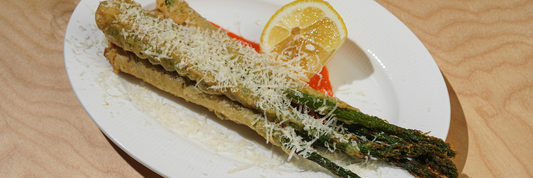Restaurants have spent the past few years reinventing the way they serve customers, especially as takeout becomes a core revenue stream rather than a side offering. Among the many models emerging, one stands out for both creativity and profitability: the sushi subscription box.
This model appeals to busy professionals, health-focused consumers, and food lovers who value consistency and convenience. And as restaurants explore new ways to stabilize revenue, many are now turning to Kimecopak for premium, sustainable, ready-to-deliver packaging that keeps sushi fresh while elevating the subscription experience.
-
The History of Sushi: From Ancient Origins to Global Phenomenon
-
The History and Philosophy Behind the Art of Japanese Sushi
-
How to Accurately Calculate Food Cost per Sushi Roll to Maintain Sustainable Profit
Why Sushi Subscription Boxes Are Emerging in the Takeout Market

Changing consumer habits toward convenience and predictability
A study by McKinsey shows that subscription-based food services grew 20% annually in North America. Customers want predictable routines, and meal subscriptions seamlessly fit into their lifestyle.
Sushi fresh, light, and portion-controlled naturally aligns with this shift.
Rising demand for premium, ready-to-eat meals
Consumers no longer want generic takeout. They want chef-curated meals delivered with care. Sushi subscription boxes allow restaurants to offer consistent quality without compromising freshness.
How subscriptions stabilize revenue for restaurants
Traditional takeout is unpredictable. Subscription models allow restaurants to:
-
Forecast weekly ingredient needs
-
Reduce food waste
-
Plan staffing and operations
-
Generate recurring, predictable income
This is especially valuable for small sushi bars or modern cloud kitchens.
How the Sushi Subscription Box Model Works

Weekly, bi-weekly, and monthly subscription formats
Restaurants typically offer:
-
Weekly boxes (most popular)
-
Bi-weekly premium chef selections
-
Monthly discovery boxes
Flexible options attract a wider audience and reduce churn.
Customization options to enhance customer experience
Popular add-ons include:
-
Extra nigiri
-
Seasonal rolls
-
Vegan or gluten-free sets
-
Bento-style pairings
The more personalized the subscription, the higher the retention rate.
Logistics for fresh, safe, on-time deliveries
To maintain quality:
-
Fish must be portioned the same day
-
Boxes must be leak-proof
-
Temperature stability is essential
-
Delivery routes must be optimized
This is where food-safe, insulated, and eco-friendly packaging becomes part of the business infrastructure.
Benefits for Restaurants Adopting a Sushi Subscription Model

Predictable recurring revenue
Restaurants gain financial stability critical in a fluctuating market.
Higher customer loyalty & reduced churn
Subscribers remain loyal longer because they integrate sushi into their weekly routine.
Streamlined kitchen operations
Chefs can prep in batches, reducing waste and time.
Cost-efficiency in packaging and inventory
When volume becomes predictable, packaging costs drop significantly through bulk purchasing.
What Customers Look for in a Sushi Subscription Box

Freshness & food safety
Customers expect sushi that tastes as if they ordered it minutes ago.
Premium packaging that ensures quality
Crushed rolls or soggy rice can destroy loyalty instantly.
Sustainable packaging choices
Modern consumers especially urban millennials prefer eco-friendly solutions.
Add-ons, variety, and flexibility
Customers stay longer when they can personalize their box.
Why Packaging Matters in Sushi Subscription Success
Food preservation and freshness retention
The right packaging keeps:
-
Moisture balanced
-
Temperature stable
-
Odors contained
Leak-proof and temperature-stable designs
Sushi boxes must handle soy sauce, spicy mayo, and vinegar rice without leaking.
Eco-friendly packaging expectations
According to Deloitte, 64% of consumers prefer brands that use sustainable packaging.
How Kimecopak supports restaurants with sustainable sushi packaging
Kimecopak provides:
-
Compostable sushi trays
-
Clear PLA lids
-
Paper bento boxes
-
Leak-proof sauce containers
-
Insulated delivery bags
Restaurants trust Kimecopak for packaging that protects quality and reflects a premium, sustainable brand image.
Best Packaging Options for Sushi Subscription Boxes

Compostable sushi trays
Perfect for presentation-based assortments.
Kraft paper boxes with PLA lining
Excellent for rolls or nigiri sets needing moisture control.
Leak-proof sauce containers
Prevents spills and keeps flavors intact.
Temperature-stable insulated bags
Ideal for maintaining freshness during longer deliveries.
How Restaurants Can Launch Their Sushi Subscription Program
Build a subscription menu designed for travel
Select rolls that maintain structure:
-
Futomaki
-
California rolls
-
Vegetable rolls
-
Nigiri sets
Avoid items that degrade quickly, such as tempura sushi.
Choose the right packaging partner
A reliable supplier ensures:
-
Consistent quality
-
Inventory stability
-
Eco-friendly certifications
Kimecopak provides local restaurants with fast shipping across Canada & North America.

Create streamlined ordering processes
Use platforms like:
-
Shopify
-
Squarespace
-
BentoBox (restaurant-focused)
-
Subbly (subscription-first platform)
Marketing strategies for local audiences
Effective tactics include:
-
TikTok tasting videos
-
Instagram unboxings
-
Influencer partnerships
-
“First box 20% off” campaigns
Conclusion
The sushi subscription box model isn’t just a trend it’s a strategic evolution in restaurant takeout. It offers recurring revenue, deeper customer loyalty, and a modern dining experience tailored for convenience-driven consumers.
With the right packaging partner like Kimecopak, restaurants can scale sustainably while ensuring every box arrives fresh, safe, and beautifully presented.
FAQ
Q1: What is a sushi subscription box?
A curated weekly or monthly sushi meal delivered to customers on a recurring basis.
Q2: Are sushi subscription boxes profitable for restaurants?
Yes. They provide predictable income, lower customer acquisition costs, and streamline kitchen operations.
Q3: How do restaurants keep sushi fresh during delivery?
Through temperature-stable packaging, fresh same-day prep, and insulated delivery bags.
Q4: What packaging is best for sushi takeout?
Compostable trays, PLA-lined kraft boxes, leak-proof sauce cups, and insulated bags are top choices.
Q5: How can restaurants start offering sushi subscription boxes?
By designing a travel-safe menu, choosing reliable eco-friendly packaging, and setting up a subscription platform.




